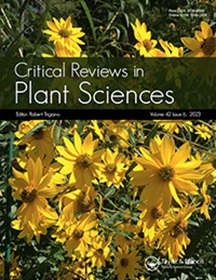Progress in Marker-Assisted Selection to Genomics-Assisted Breeding in Tomato
IF 6
2区 生物学
Q1 PLANT SCIENCES
引用次数: 4
Abstract
Abstract Tomato is an important vegetable crop for fresh and processed products. In the past decades, conventional breeding cum marker-assisted selection (MAS) has been deployed widely to develop modern tomato cultivars with desirable agronomic traits, market classes, and consumer preferences. The rapid developments in sequencing technologies with the reduced costs per sample, high-throughput single nucleotide polymorphism (SNP) genotyping platforms, and bioinformatics tools have revolutionized crop improvement programs, and deciphered the tomato genome sequence in 2012. Since then thousands of cultivated, its close relatives, and wild species have been genome resequenced to analyze structural variants population structure, genetic diversity, high-density map construction so on. Further, tomato pan-genomes have been constructed to search genomics regions associated with agronomic traits to expedite the breeding process. Importantly, genomics-assisted research has begun in tomatoes with the identification of genes, and SNP markers associated with phenotypic variation by applying genome resequencing, genome-wide association studies (GWAS) using SNP array, and genotyping-by-sequencing techniques. Further, the genomic selection (GS) method is expected to increase breeding efficiency and genetic gain rapidly. This review provides the latest information on progress in MAS to genome resequencing, pan-genomes, SNP genotyping, GWAS, and GS for genomics-assisted breeding in tomatoes.番茄标记辅助选择到基因组辅助育种的研究进展
摘要番茄是一种重要的蔬菜鲜加工作物。在过去的几十年里,传统育种和标记辅助选择(MAS)已被广泛应用于开发具有理想农艺性状、市场类别和消费者偏好的现代番茄品种。测序技术的快速发展,每个样本的成本降低,高通量单核苷酸多态性(SNP)基因分型平台和生物信息学工具已经彻底改变了作物改良计划,并在2012年破译了番茄基因组序列。从那时起,成千上万的栽培物种、近亲和野生物种被重新测序,以分析结构变异、种群结构、遗传多样性、高密度图谱构建等。此外,还构建了番茄泛基因组,以搜索与农艺性状相关的基因组学区域,加快育种进程。重要的是,基因组学辅助研究已经开始在番茄中进行,通过应用基因组重测序、使用SNP阵列的全基因组关联研究(GWAS)和测序技术进行基因分型,鉴定与表型变异相关的基因和SNP标记。此外,基因组选择(GS)方法有望快速提高育种效率和遗传增益。这篇综述提供了MAS在番茄基因组测序、泛基因组、SNP基因分型、GWAS和GS基因组辅助育种方面的最新进展信息。
本文章由计算机程序翻译,如有差异,请以英文原文为准。
求助全文
约1分钟内获得全文
求助全文
来源期刊
CiteScore
12.90
自引率
1.40%
发文量
15
审稿时长
>12 weeks
期刊介绍:
Critical Reviews in Plant Sciences focuses on presenting in-depth and up-to-date reviews of timely and/or cutting-edge subjects in the broad discipline of plant science, ranging from molecular biology/biochemistry through the areas of cell biology, plant pathology and physiology, genetics, classical botany, and ecology, to practical agricultural applications. Articles in the journal provide an up-to-date literature base for researchers and students, pointing the way towards future research needs. The journal is also a significant source of credible, objective information to aid decision makers at all levels.

 求助内容:
求助内容: 应助结果提醒方式:
应助结果提醒方式:


